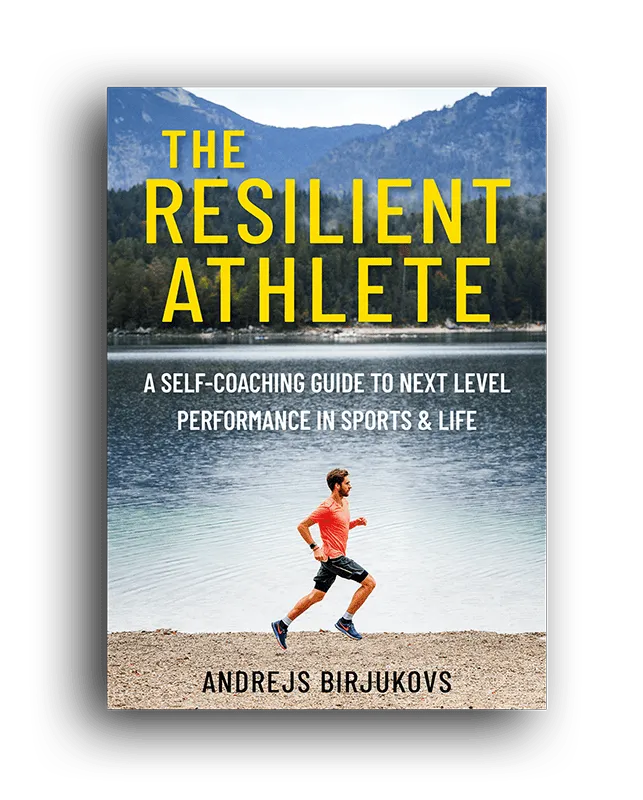How to Create Your Optimal Wind-Down Routine For Better Sleep
Many people desire a restful night’s sleep that helps them wake up feeling energised and prepared for the day ahead. However, aiming to sleep better, the majority make a mistake looking towards supplements and sleep-enhancing drugs. While what they actually need is a wind-down routine before bed.
Yes, such evening routine isn’t easy to build. It requires time, effort and mindfulness. But it’s worth it.
The same as you can’t build a house without a foundation for it, you wouldn’t be able to achieve a healthy restorative sleep without a bedtime routine.

But before I share tips on how to build a wind-down and bedtime routine. Let’s touch on how our actions before bed can impair our sleep.
What impairs good sleep?
Think of it this way. You want to clean a room full of people. They walk around, sit on the furniture, have food and do other things which makes the room even dirtier. You might try to clean it, but very likely, it won’t go smoothly, and you’d decide to wait until they leave.
The same with sleep.
It’s challenging to fall asleep shortly after you finish working or scrolling on social media.
Your head is still busy digesting the content you just consumed, creating new thoughts and ideas related to it. These thoughts and ideas are the people from the example above.
Your brain should be calm and free from active cognitive processes to fall asleep fast and activate restorative mechanisms which allow you to wake up feeling rested.
By the way, when I say brain, it doesn’t mean poor sleep only affects your mental recovery. During sleep, we travel through several cycles that make mental and physical recovery possible. So don’t expect much gains in sport if your sleep sucks.
Read also: The Science Of Restorative Sleep For Athletes: How Many Hours Do You Need?
How to create a wind-down routine
If you think that following the same routine every day is boring, I would like to offer a different perspective. The secret lies in building your routine around activities you enjoy. Not only will it promote relaxation and improve your sleep, but it will also create a joyful moment in your day to look forward to, which is particularly important on difficult days.

#1 Pick the desired bedtime and stick to it
Going to bed at the same time is the best way to get sufficient sleep; doing it consistently helps our bodies become accustomed to a specific sleep schedule, making it easier to fall asleep and wake up refreshed.
If your desired bedtime and the time you go to bed now are too far, take small steps each week by going to bed 30 minutes earlier to gradually reach your desired time. It may take a while, but it will be a smoother and easier transition for you.
#2 Think backwards when creating a wind-down routine
Now that it’s clear when you want to be in bed think of what you want to do beforehand. Choose a relaxing activity you’d enjoy doing before falling asleep. It could be anything from showering to reading, listening to music, or chatting with loved ones—whatever helps you relax.
One of my clients finds washing dishes in the evening relaxing. And we incorporated this activity into his wind-down routine.

The Resilient Athlete
A Self-Coaching Guide to Next Level Performance in Sports & Life
Are you aiming to become a resilient athlete who is able to withstand any pressure? Be able to jump on any opportunity? Take any challenge life throws at you head on?
Then this book is for you.
Learn more#3 Pair actions to optimize your wind-down routine
Your routine can consist of a few actions which eventually shape a seamless flow. This flow would help you not overthink what comes next. Each action would naturally lead to the next. Less cognitive processes leads to better sleep, remember?
For instance, the second half of my evening routine starts at 21:00 and takes place in the bedroom. Once I enter the bedroom, I stay there. I switch on a bedside lamp, open a window, and close the curtains. Then, I go to the bathroom to wash my face and brush my teeth. Afterwards, I head straight to bed, where I read a book for the next 30 minutes, and turn off the lights after, not later than 22:00. I don’t even question this routine anymore – it has become second nature to me.

#4 Detach from work
You can’t be in two places at the same time. Similarly, trying to enjoy an evening with family while handling “urgent” work issues is counterproductive. Neither of the two would benefit, and it would only add stress to your evening.
That’s why detaching from work in the evening is so crucial. Pick a time to end your work day. When the time comes, switch off your laptop, limit phone notifications and let go of work until the next day
Read also: Athlete Mental Health: 20 Ways To Overcome Burnout In Sports
#5 Keep your phone away
Many of us struggle with excessive phone usage, especially in the evening and before bedtime.
For some, setting app limits after a certain time can make it more challenging to indulge in mindless scrolling. Others may benefit from physically distancing themselves from their phones by placing them out of sight.
I once worked with a client who, as a business owner, found peace by locking his phone in a safe. This radical step allowed him to have a truly relaxing evening and a restful night.
While such extreme measures may not be necessary for everyone, it’s important to find an approach that suits you best and enables you to enjoy your evenings offline.
Sample wind-down routine
Here’s a simple evening routine that you can follow to unwind, connect with loved ones, and create a sense of closure before bedtime. Adjust the timing as per your schedule and preferences:
22:00: Lights go off
21:30-22:00: Read a book or listen to a podcast for relaxation.
21:15-21:30: Take a refreshing shower.
20:15-21:15: Get ready for the following day (meal prep, pack training stuff, write down to-dos etc.)
19:00-20:15: Dinner and time with beloved ones
19:00: Phone – wind down mode on
18:30-19:00: Make closing notes, write down to-dos for the next day and finish work.
Last but not least, don’t rush and be patient. It’ll take time before you find a relaxing evening routine you enjoy. Take one or better two weeks to practice a single action. For instance, focus on going to bed at a specific time for one week. The following week, maintain the consistent bedtime and add a new habit like reading for 15 minutes before bed. And so on.
And if you feel that you need assistance and guidance in navigating this process, I am here to help.
Olya Amelina
Olya Amelina is a health & performance coach who helps amateur athletes with ambitious goals in sport, while juggling a full-time job and other life commitments. She focuses on creating personalized daily routines that cover sleep, nutrition, training, and work. Her goal is to help people feel great, gain confidence, and perform their best in sports, work, and everyday life. Reach out to Olya via her website, Instagram, LinkedIn or email.
Have an opinion? Share via links below and tag @theathleteblog
Tags In
GET A FREE TRAINING PLAN
Subscribe to my email list and get access to a free 4-week “back in shape” training plan
You’ll also get two full-body strength sessions and some other goodies!

How did I get here?
Hey there! My name is Andrejs and I am here to inspire, entertain and get you fit for any adventure.
I went from being an over trained pro athlete to an endurance coach sharing how to listen to your body and live life to the fullest.
Traveling, new sports & activities brought new meaning to my training and made it much more effective, fun and enjoyable. And I'm here to help you do the same.


